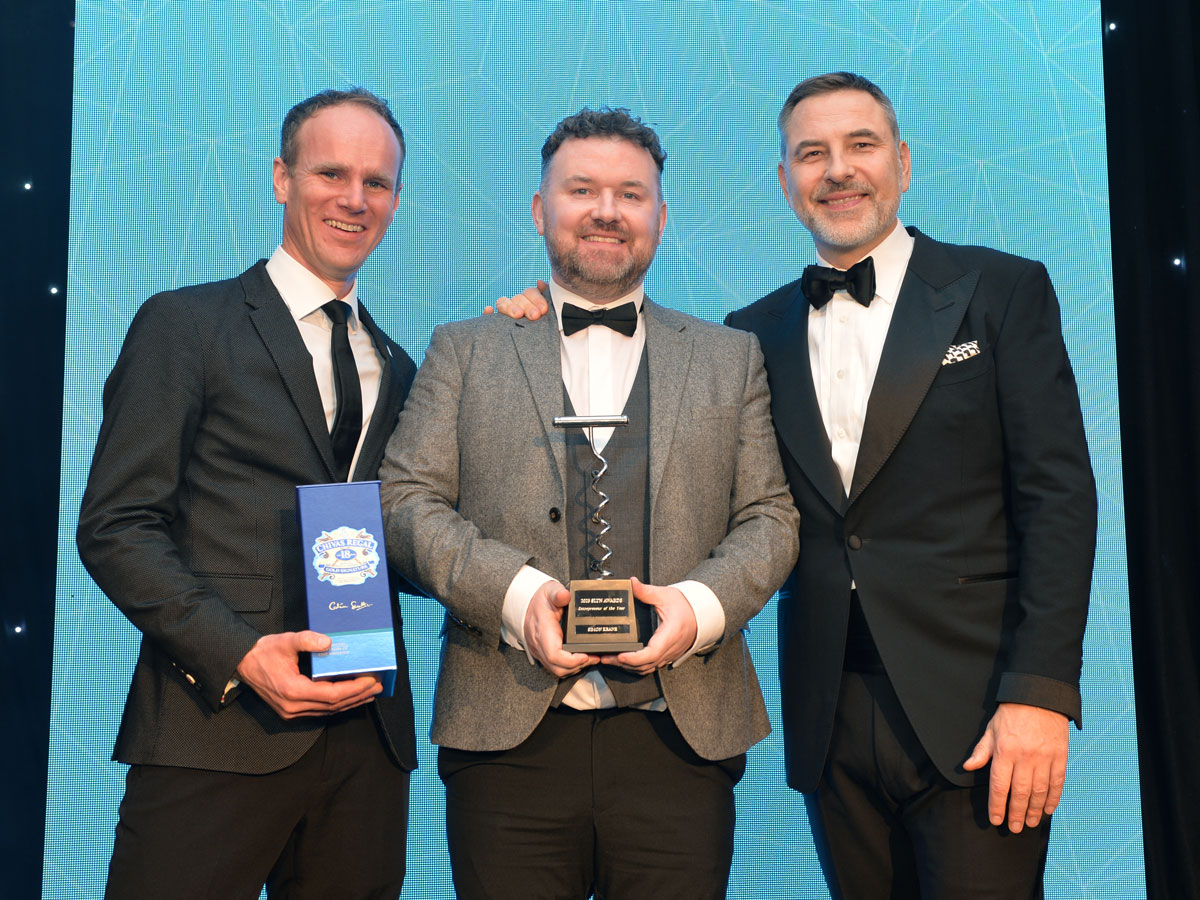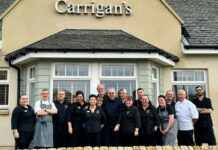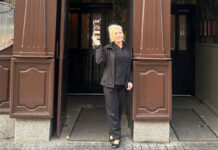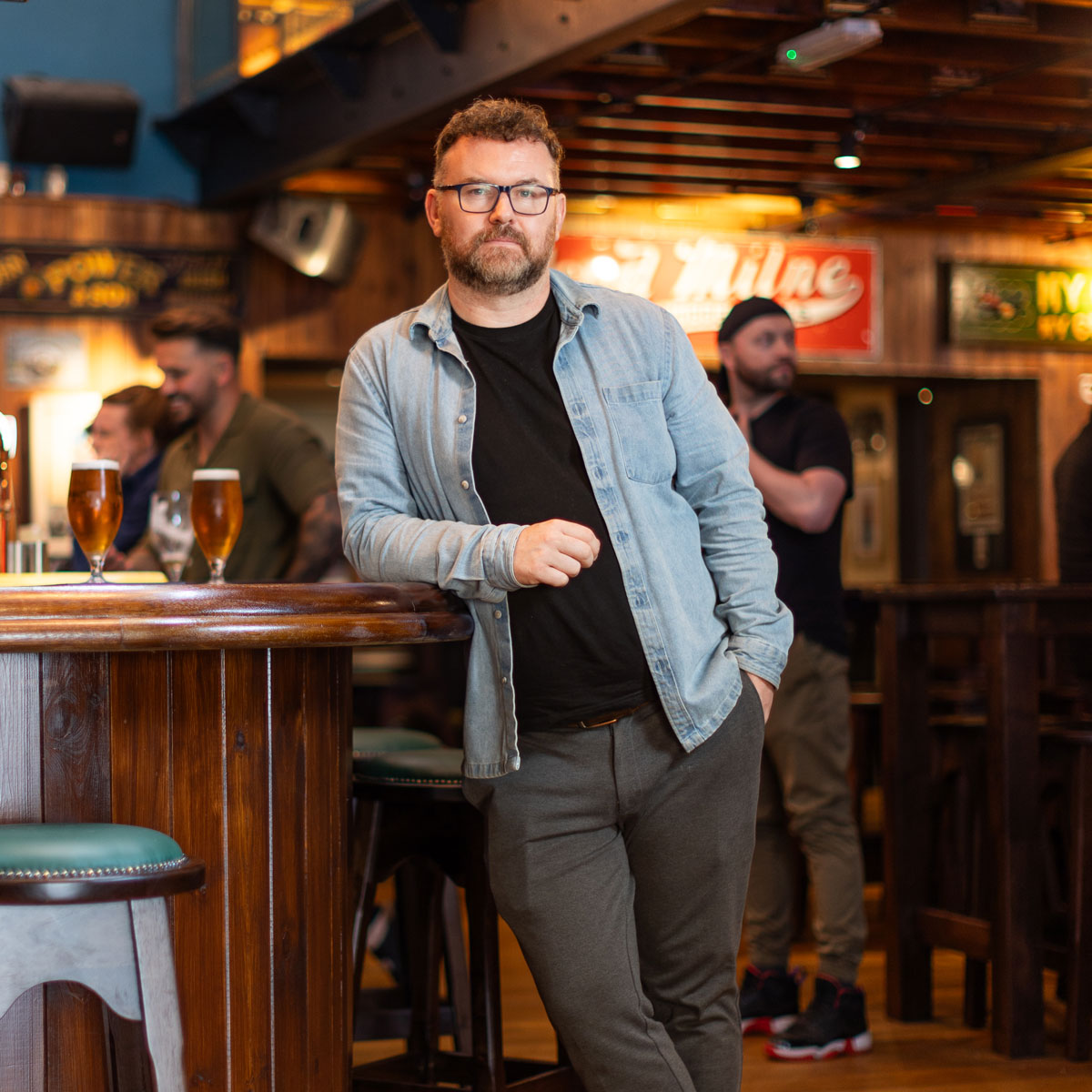
Ask Malones Irish Bars supremo Simon Keane the secret of his success, and his first instinct is to deflect the lion’s share of the credit onto the people he has around him.
“It’s all about teamwork – I am only as good as the person next to me,” insists Simon, who described winning the 2023 SLTN Entrepreneur of the Year award, presented in association with Chivas Regal, as an ‘unexpected’ honour.
“We’ve received awards in the past, but they’ve been for the bars and the spirits. It’s unusual to have it aimed at me personally.”
But it is very clear that Simon richly deserves recognition as a true captain of enterprise, embodying as he does that leadership duality of one hand firmly on the tiller and the other fixing a telescope on the horizon.
At a time when many hospitality businesses have had no other thought than to batten down the hatches against the economic storm, the Malone family has time and again correctly read the conditions and steered a course to success.
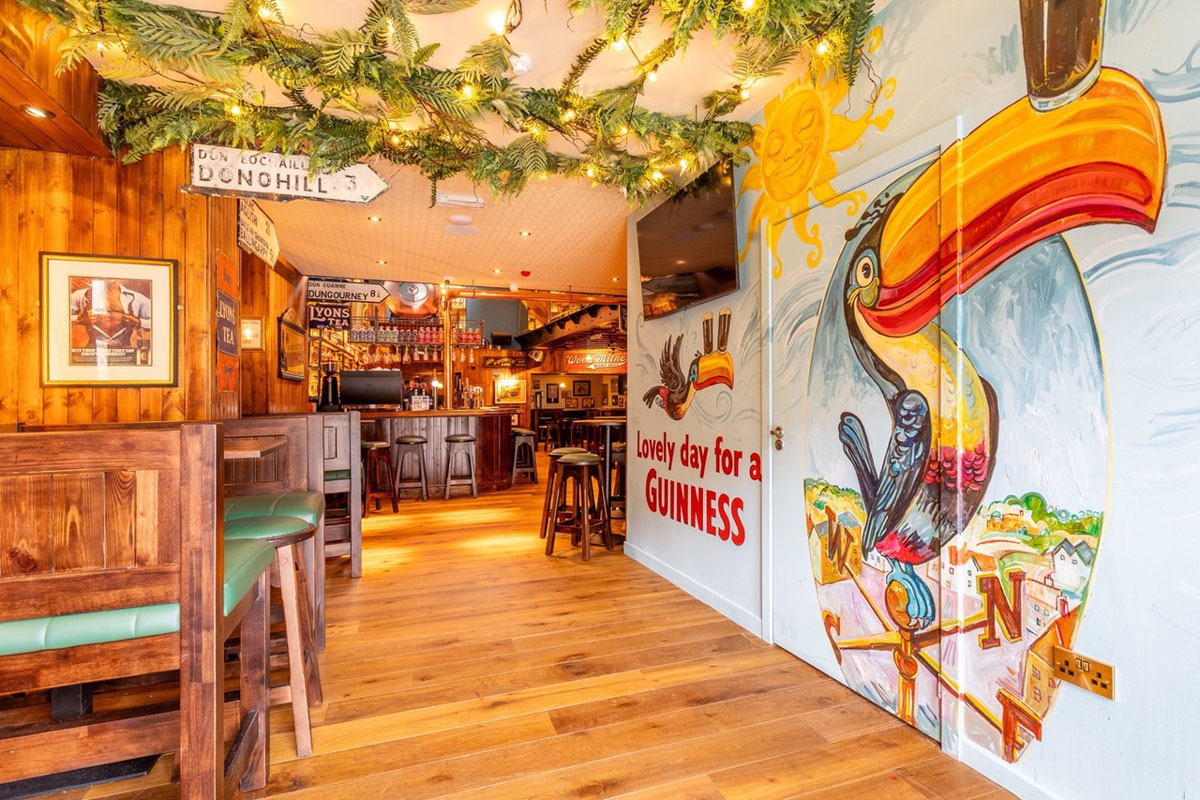
“We are not in this industry to have an easy time – you’ve got to work really hard at it and love what you do,” said Simon, as we chatted over cups of lunchtime tea in his newest venue, Malones Leith, which perfectly encapsulates the company ethos of being a ‘classic Irish pub, that just happens to not be in Ireland’.
“We always try to be ahead of the curve and see what people want. For example, a few years ago, you’d never have cocktails in an Irish pub, but there they are now, and they sell well.
“We’ve venues with over 200 whiskies now too. We are offering that premium product, in that kind of range, and it feels like a natural fit – but in the past, you’d have to go to a very specialist place for that.
“Our management, our staff, they are open to new ideas. A lot of people are nervous of new ideas, but that isn’t our style. You have to adapt and find a way. It is all about keeping the customer happy. If the customer can come in, find something they want at the bar and then feel comfortable staying to enjoy it, you are on the right course.”
The smart two-floor Malones Leith is the latest venue opened by the group, occupying the space that for many years was the Old Constitution Bar.
Simon was drawn there following discussion of the genealogy of his wife’s family, who first arrived in Scotland at the famous drinks trade port, then made their home there for many years. But pragmatically, he adds, another good reason the company came to Leith was that, until they stepped in, it had neither a good sports bar, nor an Irish pub.
The Malones team – a mixture of local tradesmen and veteran pub joiners shipped in from Ireland – opened up the space, and fitted it out to Simon’s liking, which as he has said before, is an Irish pub aesthetic ‘without the paddy-whackery’.
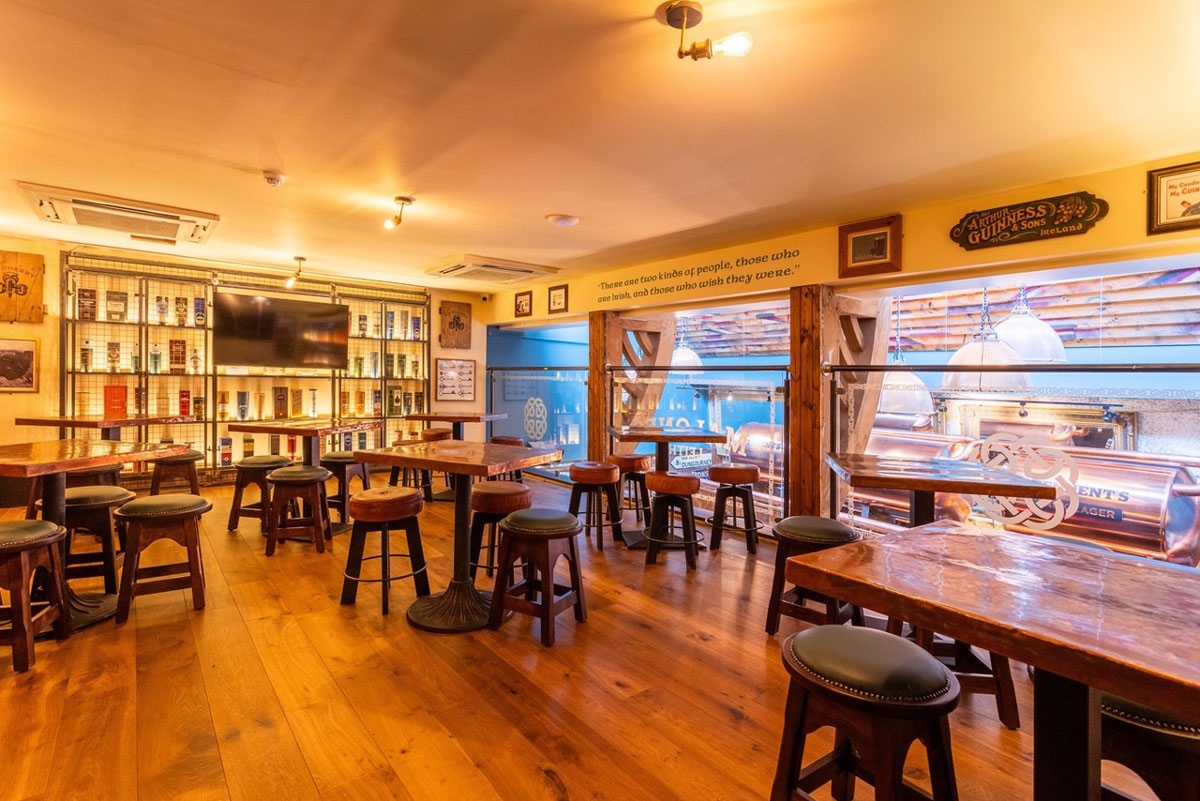
While bric-a-brac is a crucial part of the look, Simon won’t countenance any old irish-themed tat, preferring to source authentic items from genuine Irish pubs and businesses.
While Malones Leith was being fitted out, Simon became aware of an old County Clare pub that was shutting down and selling up and, in his words, ‘spent a long eight hours on an online auction site’ securing a lot of what had been hanging on its walls for a century or more.
Another strict Malones stipulation is on its bar, where its status as a top seller of Guinness has earned it the right to use ‘original’ Guinness taps. “We are good customers so Diageo do give us a lot of support,” he admits.
Speculating on the renewed popularity of stouts, Simon reckons it’s an unexpected repercussion of lockdown: “During Covid everyone was craving a good poured Guinness – so straight out of Covid, demand for stout was high, and the trend has stuck. We are selling equal values of Tennent’s and Guinness these days, when it was at best 60:40 before.”
The Tennent’s tap in Malones is special too, given that the group is the biggest seller of tank beer in the UK, pouring an expression of Tennent’s that can be described as a different, arguably superior product.
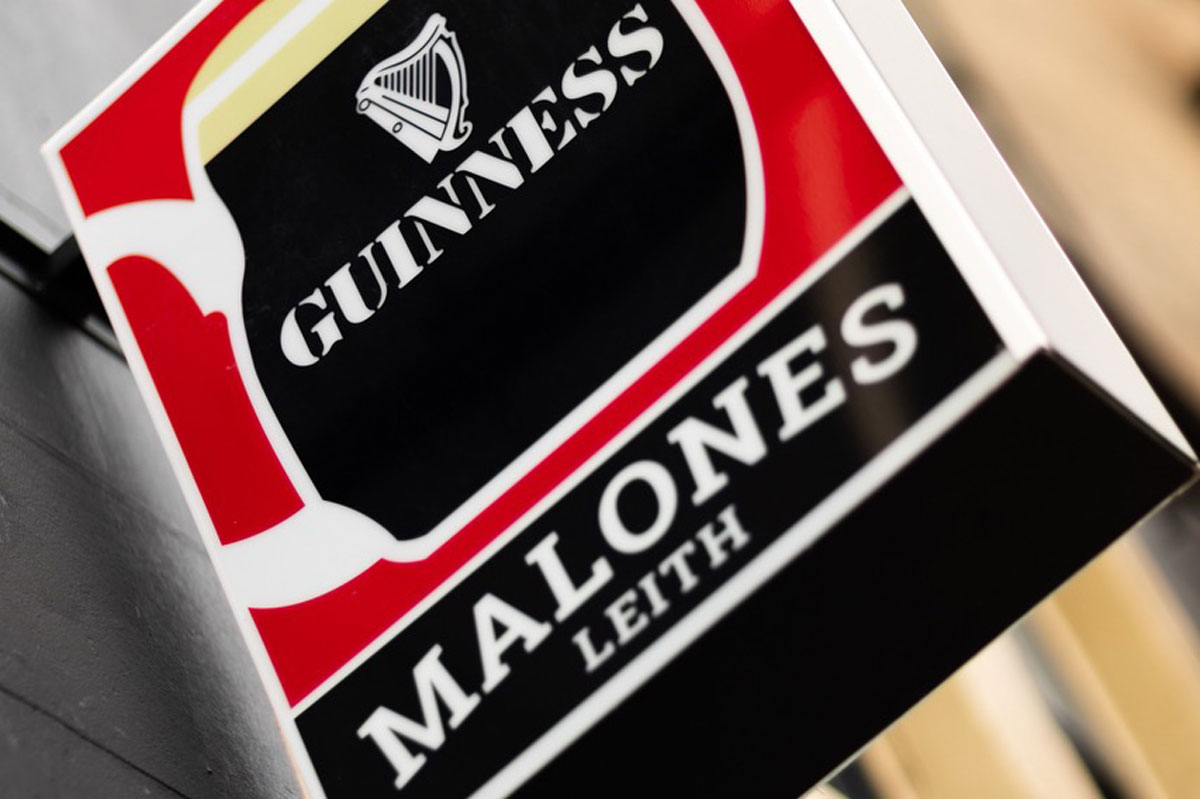
“The tank beer comes here through a tank beer company that comes straight from Wellpark Brewery,” explains Simon. “It’s unpasteurised, which means no preservatives. The whole USP is that the first time the air hits it, is when it’s in your glass. But once that tank is open, we have to sell it in seven days.”
But Simon stressed that this close, bordering on obsessive, attention to providing an excellent beer offering did not make Malones a ‘one-trick pony’. The Leith venue also offers a lively food menu, and a vast range of drinks that don’t come in pints.
On that back bar, a particular family focus is the spirits range that was borne out of the company’s need for lockdown cashflow, but which has since won them awards and, as Simon puts it, ‘is a brand we think has legs’.
“We always wanted to do our own spirits, especially our own whiskey, but it was something for five or 10 years down the road, but then Covid came along and we had no income, and we started doing cocktail deliveries, so one thing led to another.”
There had been a tie up with Secret Garden Gin before Covid, so preliminary design work had already been done, and the sudden injection of spare time got that ‘Smugglers’ gin range off the ground. When things opened back up, the company’s focus naturally went back to the bars, but there was enough momentum in the spirits to justify hiring some people to run it as a separate business.
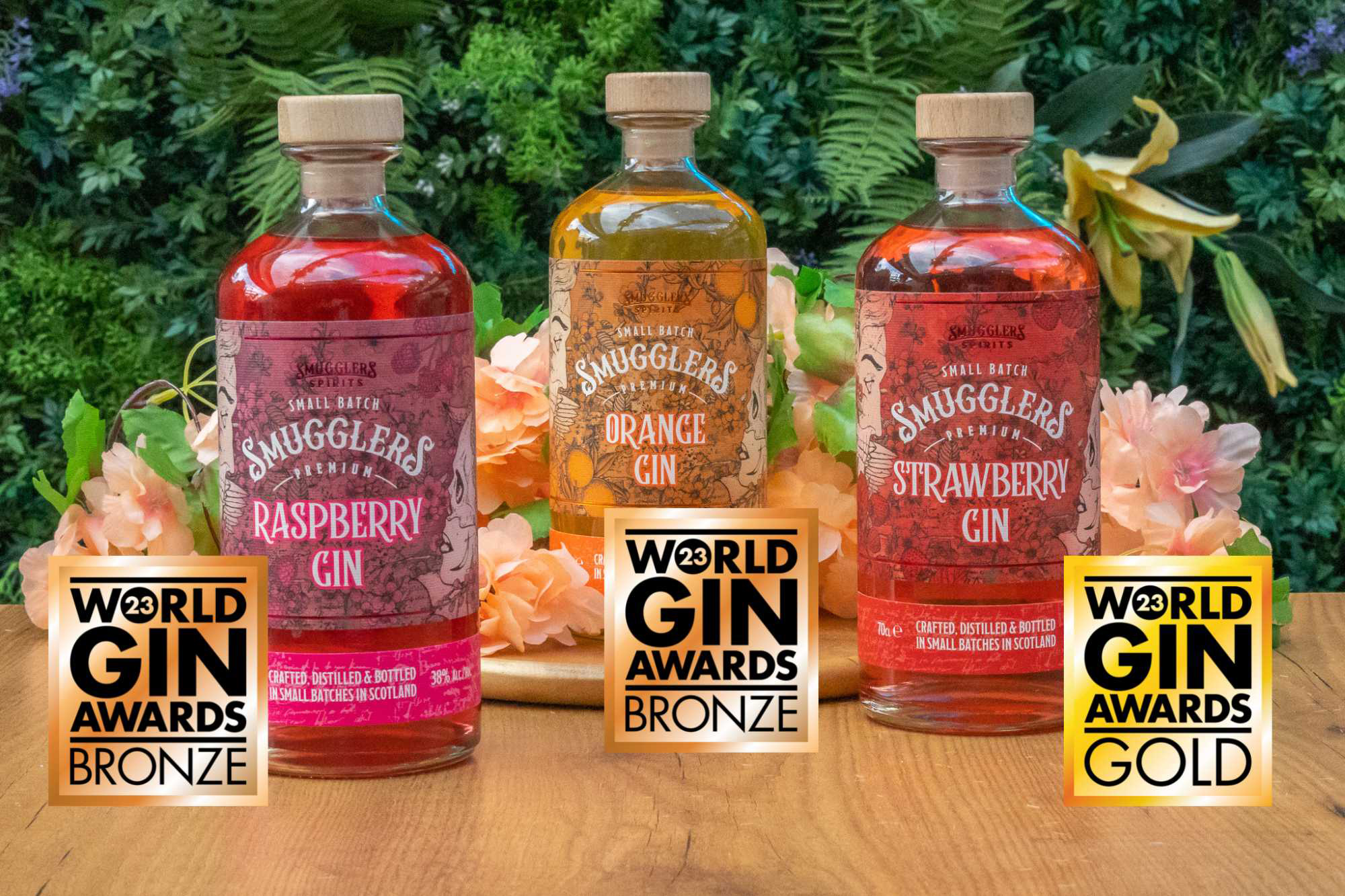
With Edinburgh outdoor space at a premium, the Malones’ Festival Village venture on top of the Waverley Centre became a thriving summertime hub in the city, and the Smugglers portfolio of flavours was expanded to meet the demand which that exceptional public platform stirred up. The creation of a Scottish vodka to run alongside was not, in hindsight, a bad move either, as Russian-linked products abruptly suffered an image problem.
However, while this was all good business, one can sense the Simon’s passion lay with the idea of a Malone’s Whiskey.
“For the whiskey we approached a renowned Distillery in the Liberties district in Dublin and told them we wanted to do a blend,” he recalled. “A few years ago blended whisky was a bad word, but now it is much more popular and people are trying lots of new things.”
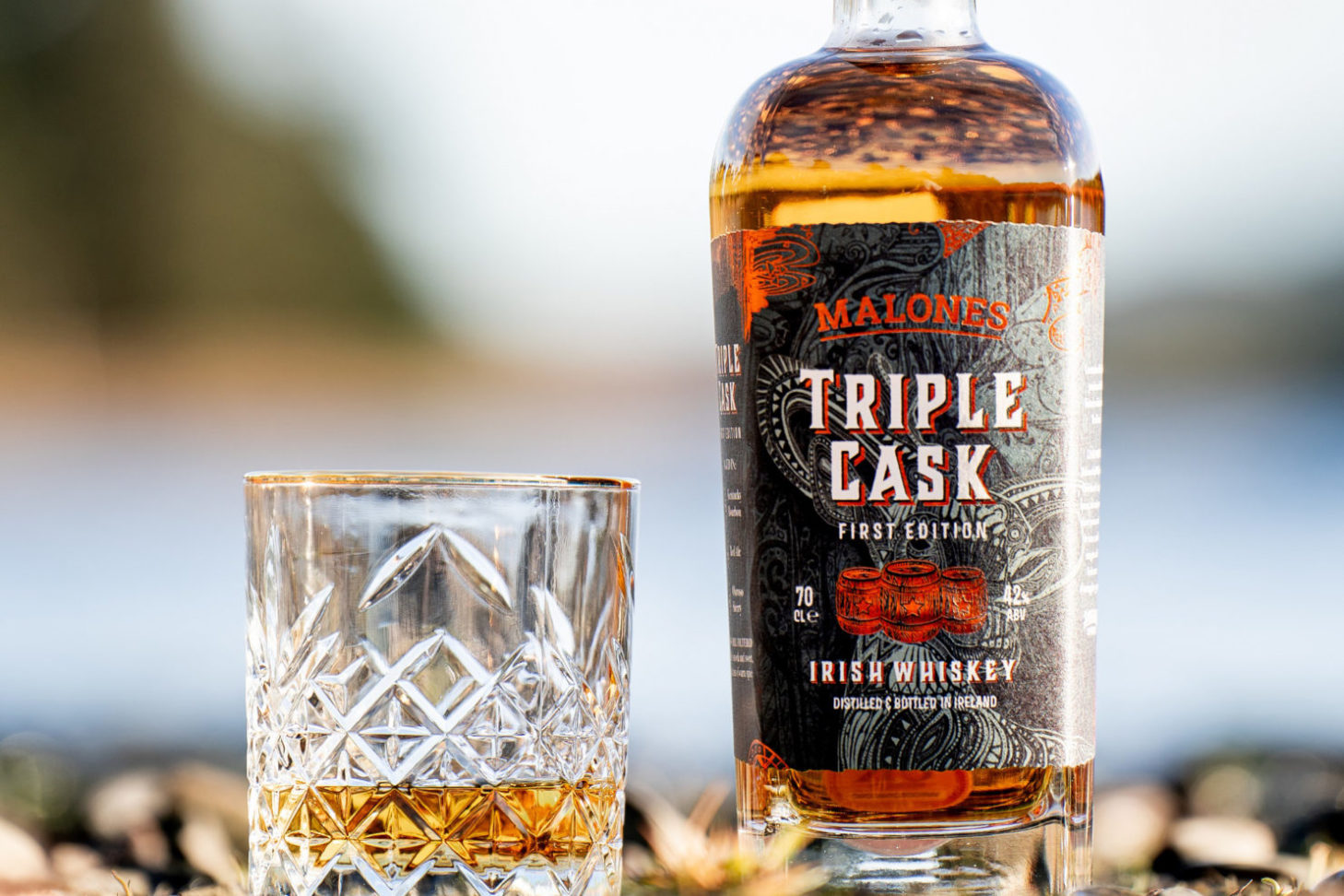
Enthusing about the Irish whiskey scene, Simon notes that from a moribund past, it now involves ‘loads of distilleries, independent bottlers, small-scale blenders, and loads of experimentation’ and suggests that the emerging blend boom in Scotland is in fact following that Irish lead.
“We wanted Malones whiskey to be a showcase of that. It took lots of samples going back and forth, but we were happy with the outcome, a blend using Oloroso sherry, Kentucky bourbon, and red ale barrels. It is very versatile – great on its own, great in a cocktail.”
Such is the family’s enthusiasm for the product, they are currently trying to get their Malones Whiskey trademark approved in America. “Go big or go home,” he deadpans.
When SLTN met with Simon, pre-Christmas, bookings were strong and he was feeling positive about festive trade, but nonetheless cautious due to the persistently inclement financial climate.
“We’d like to expand and we’d like to do more, but now we are operating in an environment where costs are up considerably and our margins are cut.
“It is strange – when costs gradually increase you can cope by putting up the price of a pint by 5 or 10 pence – but last year, costs went up so much, so quickly, you just couldn’t match it. We had to take the hit.
“Everyone was looking at each other to see who, if anyone, would dare to make a matching increase. So you keep your finger in the air, to see how the wind is blowing.”
But proceeding cautiously should never be mistaken for ‘coasting’.
“The pub industry won’t give me that luxury,” he said. “You can be popular one year, then suddenly you are nothing. Every pub in this city are our allies – but they are also our competition.
“So it’s an unusual business to be in, but that is the charm of it.”
